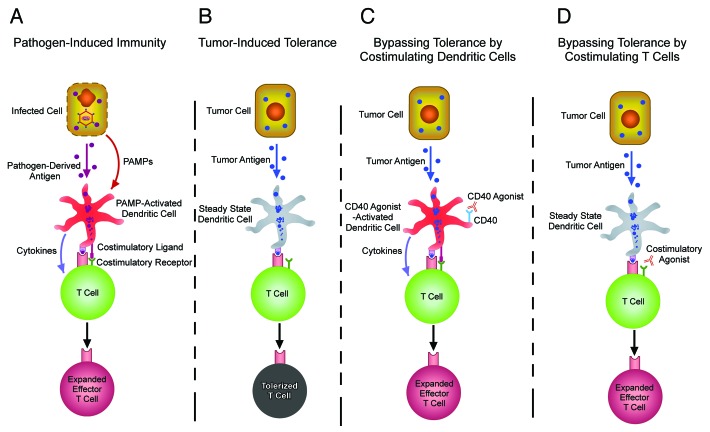Figure 1. Co-stimulatory agonists enable T cells responding to tolerogenic tumor antigens to undergo expansion and effector differentiation. (A) Pathogen-associated molecular patterns (PAMPs) activate dendritic cells (DCs) presenting microbial peptides to express cytokines and co-stimulatory ligands that program T-cell expansion and effector differentiation. (B) In steady-state conditions, DCs acquire and present tumor antigens, but the absence of PAMPs results in the sub-optimal expression of cytokines and co-stimulatory ligands, causing cognate tumor-specific T cells to undergo tolerization. (C) CD40 agonists can activate DCs presenting tumor antigens to express cytokines and co-stimulatory ligands that program T-cell expansion and effector differentiation. (D) Agonists to co-stimulatory receptors program T cells responding to tumor antigens presented by steady-state DCs to undergo expansion and effector differentiation. A potential advantage of the approach described in (D), as compared with that depicted in (C), is that potentially toxic cytokines produced by DCs such as IL-12 are likely to be elaborated in much lower amounts.

An official website of the United States government
Here's how you know
Official websites use .gov
A
.gov website belongs to an official
government organization in the United States.
Secure .gov websites use HTTPS
A lock (
) or https:// means you've safely
connected to the .gov website. Share sensitive
information only on official, secure websites.
